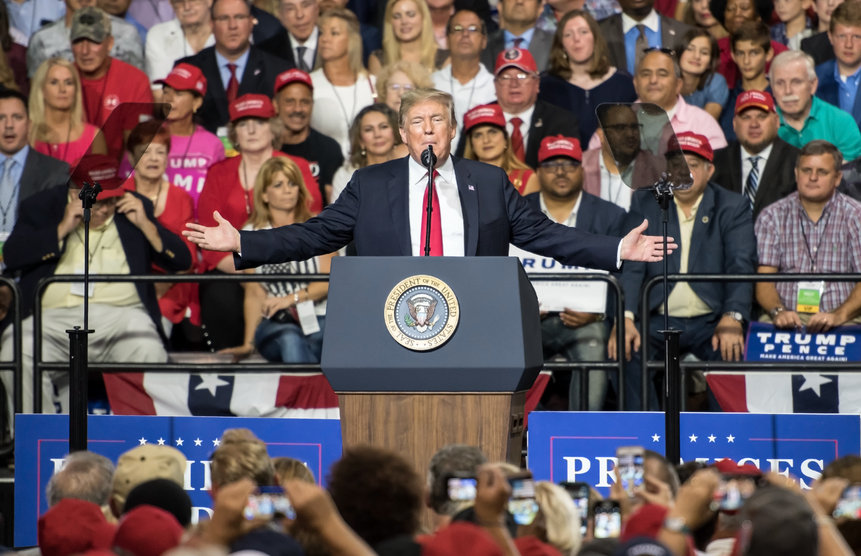
Donald Trump visited the General Motors site in Michigan on Thursday, addressing UAW autoworkers about the future of the auto industry. He cautioned that China could soon dominate their industry, threatening their jobs.
Despite recent wins for General Motors in converting its sites to EV manufacturing facilities, concerns about competition from Chinese electric vehicles (EVs) persist. The US government has so far responded to this threat with tariffs, a measure Trump advocated for continuing.
However, Trump referred to tariffs as a “taxation on foreign governments,” a comment that sparked reactions online. Mark Cuban weighed in on X (formerly Twitter), clarifying what tariffs entail.
A tariff is a tax imposed on foreign-made goods, paid by the IMPORTING BUSINESS (Walmart would be an example) to its home country’s government. (USA)
As an example , Walmart imports billions and billions of goods. If there is a 10 pct tariff, Walmart pays the US government…
How do tariffs work?
Mark Cuban’s explanation of tariffs is accurate.
When a country like the US imposes tariffs on imported goods, it is the importing company, not the foreign government, that pays the tariff.
For example, if Walmart imports a billion dollars worth of goods from China and faces a 10% tariff, Walmart would owe the US government an additional $100 million.
To recover this cost, Walmart would likely raise prices on those goods, meaning it’s the consumers who ultimately bear the burden.
In short, tariffs end up hurting local consumers.
If tariffs hurt local consumers, why impose them?
The primary reason is to protect domestic industries.
Tariffs make foreign goods more expensive, thereby making local products more competitive by comparison.
This discourages foreign companies from dominating the local market and potentially driving domestic businesses out of operation.
Take the example of the ongoing trade tensions between China and Canada over EV tariffs. China wants to export its EVs to Canada, but if they do, the local Canadian auto industry might struggle to compete on price.
To protect its industry, Canada has imposed a 100% tariff on Chinese EVs.
While this means Canadian consumers would pay more, it also makes it less attractive for Chinese automakers to enter the Canadian market at all.
This is precisely what tariffs are intended to do—deter foreign competition and protect local jobs.
The tariff debate: Trump vs. Cuban
While Trump’s advocacy for tariffs has merit in terms of protecting local industries, his characterization of tariffs as a “taxation on foreign governments” is misleading.
As established, it’s the local consumer who ends up paying the tariff, not the foreign government.
Both Mark Cuban and Trump raise valid points.
Trump’s underlying idea about the protective role of tariffs is sound, though his description of how they work was inaccurate.
Nonetheless, the debate highlights the complexities of trade policies and their impact on both domestic consumers and industries.
The post Cuban criticizes Trump’s foreign taxation policy: Who’s really paying the price? appeared first on Invezz
https://invezz.com/news/2024/08/30/cuban-criticizes-trumps-foreign-taxation-policy-whos-really-paying-the-price/


